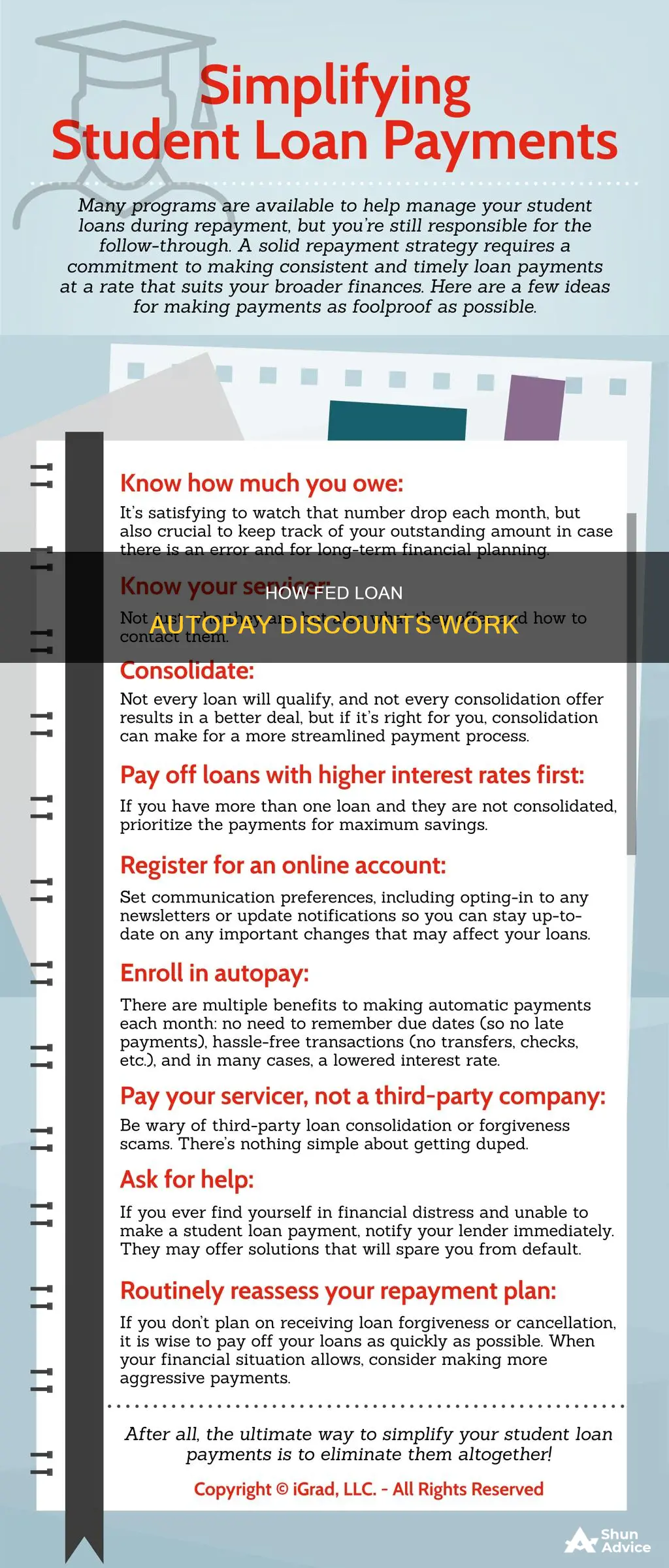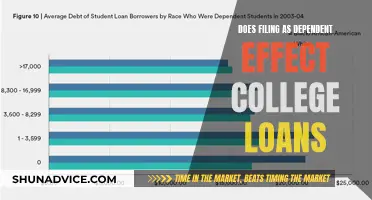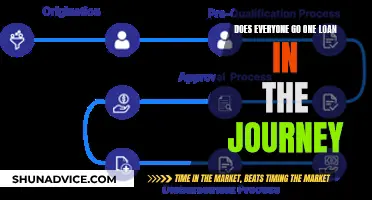
If you're looking to save money on your student loan payments, enrolling in autopay could be a good option. Most federal and private student loan lenders offer an interest rate reduction of 0.25% for those who sign up for auto-debit. This means that your monthly bill amount will be automatically withdrawn from your bank account, saving you money and preventing missed payments. Additionally, you can choose to invest your savings to grow your money even further. For example, you could use your savings to pad your Roth IRA or pay off high-interest debt faster. So, if you're looking to reduce your student loan burden, enrolling in autopay could be a great place to start.
| Characteristics | Values |
|---|---|
| Discount | 0.25% |
| Type of loan | Federal and private student loans |
| Lender | Most federal and private student-loan lenders |
| Example | A borrower with a 5% loan APR could save $423 over a 10-year loan period |
| Other names | Auto-debit, recurring payments, automatic payments |
| Other discounts | Direct deposit discount |
What You'll Learn

Student loan autopay saves money
When it comes to student loans, autopay can be a great way to save money. By signing up for automatic payments, you can often get a discount on your interest rate, which can add up to significant savings over the life of your loan. For example, a typical borrower who graduated in 2019 owes $28,950 in student loans. If they had a 5% loan APR and that was reduced by 0.25 percentage points to 4.75% through autopay, they could save about $423 over the course of a standard 10-year loan.
Additionally, autopay can help you avoid late payment fees, which can be as high as $25, and prevent damage to your credit score. With autopay, you'll never have to worry about missing a payment again, as the money will be automatically deducted from your bank account and sent to your lender each month. This can also help you pay off your loan faster, as you can add extra money to your automatic payments and pay more than the minimum each month.
It's important to note that the autopay offered by your student loan lender is different from the automatic bill payments offered by your bank. While your bank can send a payment to your lender by the due date, they may charge fees for this service, and you likely won't be eligible for the interest rate discount. So, it's best to sign up for autopay directly with your student loan lender to take advantage of the potential cost savings.
Overall, enrolling in autopay for your student loans is a great way to keep more money in your pocket. By reducing your interest rate, avoiding late fees, and making it easier to pay off your loan faster, autopay can help you save money and stay on top of your finances.
Experian Loans: What You Need to Know
You may want to see also

Avoiding late fees with autopay
Forgetting to pay a bill, especially your student loans, can be scary. Automating your payments is an easy way to help you keep track of your student loans and never miss a payment.
Most federal and private student loan lenders offer a 0.25% interest rate discount for borrowers who enroll in autopay. This can result in significant savings. For example, a borrower with a student loan of $28,950 and a 5% loan APR could save about $423 over the course of a standard 10-year loan period (approximately $42 per year).
FedLoan Servicing does offer a 0.25% interest rate reduction for borrowers who enroll in their Direct Debit program. However, they do not have the ability to offer any interest rate reductions or incentives for automatic payments set up through a third party. Therefore, it is important to enroll in their automated payment program directly to receive the discount.
To avoid late fees with autopay, it is important to maintain a high checking account balance. If there isn't enough money in your account when your autopay date arrives, you could face overdraft fees or late fees. Additionally, some lenders may require you to have your loan in full repayment before you can enroll in autopay. Therefore, it is important to check with your lender to understand their specific requirements and to ensure that you are eligible for the autopay discount.
Fannie Mae's Distressed Loan Sales: What You Need to Know
You may want to see also

Automatic bill payments via your bank
Automatic bill payments are a convenient way to ensure you never miss a payment. This is especially important for student loans, where forgetting to pay a bill can have serious consequences.
Most federal and private student loan lenders offer a 0.25% interest rate discount for those who sign up for auto-debit. This small reduction can result in significant savings over the course of the loan period. For example, a borrower with a typical loan from 2019 of $28,950 at a 5% APR could save approximately $423 over a standard 10-year loan period, or about $42 per year.
To set up automatic payments, you will need to enrol in AutoPay or Direct Debit with your loan provider. This can often be done online through your account dashboard. You will need to add your desired payment account, and the bill amount will be drawn directly from your bank account each month.
It is important to note that automatic payments may not be the best option for everyone. If you do not maintain a high checking account balance, you could face overdraft fees or late fees if there are insufficient funds in your account when the AutoPay date arrives.
FedLoan Servicing does offer automatic payments, and you can make a payment over the phone at any time by calling their automated phone system. However, they do not offer any interest rate reductions or incentives for automatic payments set up through a third party.
The Journey's Loan: A Universal Experience?
You may want to see also

How autopay affects your credit score
While autopay can be a convenient way to ensure that you pay your bills on time, it does not directly affect your credit score. However, paying your bills on time is one of the most important factors in maintaining a good credit score. Therefore, autopay can be a useful tool to help you maintain a good credit score.
Autopay allows you to set up automatic payments for your bills, such as credit card bills, utilities, and student loans. You can choose the payment amount and set it to be paid by the due date each month. This can be particularly useful for student loan borrowers, as most federal and private student loan lenders offer a 0.25% interest rate discount for those who enroll in autopay. For example, a borrower with a student loan APR of 5% could save about $423 over a standard 10-year loan period by reducing their interest rate to 4.75%.
However, it is important to remember that autopay will only help your credit score if the payments are made on time and if you have enough funds in your bank account to cover the payments. If there is not enough money in your account when the autopay date arrives, you could face overdraft fees or late fees, which could negatively affect your credit score. Therefore, it is important to monitor your account and ensure that you have enough funds to cover the automatic payments.
Additionally, autopay may not be the best option for everyone. For example, if you do not maintain a high checking account balance, you may be at risk of overdraft fees. In this case, you may want to consider other payment methods or set up overdraft protection for your bank account.
Overall, while autopay does not directly affect your credit score, it can be a useful tool to help you maintain a good credit score by ensuring that your bills are paid on time. However, it is important to consider your financial situation and choose the payment method that works best for you.
Understanding Excess Distribution: Loan Basis Included?
You may want to see also

Lenders offering autopay discounts
When it comes to lenders offering autopay discounts, it's important to understand how autopay works and the benefits it provides. Autopay allows you to have monthly payments automatically deducted from your bank account and sent directly to your lender. This convenient feature ensures you don't miss any payments and helps you avoid late fees. Additionally, some lenders offer an added incentive in the form of an autopay discount, where you can receive a reduction in your interest rate, typically around 0.25% off the APR.
Now, let's focus on specific lenders that offer autopay discounts. Here are some examples:
SoFi Personal Loans:
SoFi offers a 0.25% APR discount when you sign up for autopay. They provide flexibility by allowing you to choose between variable and fixed APRs. With SoFi, you can borrow anywhere from $5,000 to $100,000, making it a great option for those with larger expenses.
LightStream:
LightStream is known for offering some of the lowest interest rates among personal loan lenders. They also provide an autopay discount of 0.50%, which can be especially advantageous if you have a good or excellent credit score. LightStream's loan repayment terms range from 24 to 144 months, giving you extended flexibility.
Federal and Private Student Loan Lenders:
Many federal and private student loan lenders offer autopay discounts of 0.25% on interest rates. This is a great way to save money on your student loans and ensure timely payments.
Cellphone Services, Internet/Cable TV, and Insurance Premiums:
In addition to loan providers, certain monthly billing services like cellphone plans, internet/cable TV, and insurance premiums may offer autopay discounts. These discounts can help you streamline your finances and save money on regular expenses.
It's important to note that not all companies offer autopay or provide discounts for it. Additionally, the availability of autopay discounts can vary by lender and your specific loan terms. Be sure to review the fine print and understand the requirements, such as having autopay set up through a particular bank.
Fannie Mae's Role in Loan Origination
You may want to see also
Frequently asked questions
Yes, most federal and private student loan lenders offer a 0.25% discount for autopay.
Autopay allows monthly payments to be automatically deducted from your bank account and sent to your lender.
Autopay can save you money on your student loans and prevent you from missing payments. It can also help you avoid late fees and negatively impacting your credit score.







